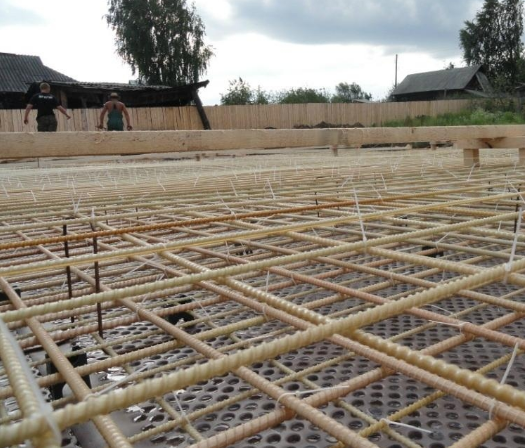- September 4, 2024
- Posted by: wellcoindustries
- Category: Rebar
Introduction
In recent years, fiberglass rebar has emerged as a game-changer in the construction industry, particularly for shop floors. This innovative material offers several advantages over traditional steel rebar, such as enhanced durability, resistance to corrosion, and ease of installation. As more construction professionals recognize the benefits, fiberglass rebar is becoming a preferred choice for reinforcing concrete structures, especially in environments where traditional materials are prone to degradation. In this article, we’ll explore why fiberglass rebar is revolutionizing shop floor construction and how it can contribute to more sustainable, long-lasting structures.

Understanding Fiberglass Rebar
Fiberglass rebar, also known as glass-fiber-reinforced polymer (GFRP) rebar, is made by combining fiberglass with a resin matrix. This composition results in a non-corrosive, lightweight, and high-strength material that offers several advantages over traditional steel rebar. Not only does it provide excellent resistance to chemical corrosion and moisture, but it also retains its structural integrity in extreme temperatures and environments, making it ideal for various construction projects, particularly on shop floors where durability is paramount.
Advantages of Using Fiberglass Rebar on Shop Floors
One of the primary benefits of using fiberglass rebar on shop floors is its corrosion resistance. Unlike steel, fiberglass rebar does not rust or corrode when exposed to moisture or harsh chemicals, which are often present in industrial settings. This resistance extends the lifespan of concrete structures and reduces the need for costly maintenance and repairs.
Additionally, fiberglass rebar is significantly lighter than steel, making it easier to transport and handle during construction. This lightness translates into lower transportation costs and reduced labor time, contributing to overall project efficiency.
Fiberglass rebar is also known for its enhanced longevity and durability. The material’s non-reactive nature means it can withstand harsh environmental conditions, such as exposure to saltwater or acidic soils, without losing strength. This makes it particularly suitable for shop floors, where long-term durability is a critical concern.
Comparing Fiberglass Rebar with Traditional Steel Rebar
When comparing fiberglass rebar to traditional steel rebar, several key differences stand out. While steel rebar has been a staple in construction for decades, its susceptibility to corrosion poses significant long-term challenges. In contrast, fiberglass rebar offers a maintenance-free alternative that does not compromise on strength or performance.
From a cost perspective, fiberglass rebar might have a higher initial price than steel; however, the reduction in maintenance, replacement, and repair costs over time often results in greater overall savings. Furthermore, the performance of fiberglass rebar in corrosive environments far exceeds that of steel, ensuring that structures reinforced with fiberglass remain safe and sound for longer periods.
Applications of Fiberglass Rebar in Shop Floor Construction
Fiberglass rebar is increasingly being used in various applications within shop floor construction. For example, it is ideal for reinforcing concrete slabs, especially in environments where steel would deteriorate quickly due to exposure to chemicals or moisture. Additionally, many construction projects have successfully utilized fiberglass rebar in bridge decks, parking garages, marine structures, and wastewater treatment plants, proving its versatility and effectiveness in demanding conditions.
Case studies have demonstrated that using fiberglass rebar can significantly reduce long-term maintenance costs while improving structural integrity. These success stories underline the growing acceptance and confidence in fiberglass rebar as a reliable material for shop floor applications.
How to Install Fiberglass Rebar in Shop Floors
Installing fiberglass rebar involves several steps that differ slightly from traditional steel rebar. The first step is to properly prepare the site, ensuring the concrete mix is suitable for use with fiberglass materials. Next, the rebar should be cut to the desired length using appropriate tools, as traditional metal cutting tools may damage the fiberglass fibers.
When placing the rebar, ensure that it is adequately supported and positioned to provide optimal reinforcement within the concrete. It is also essential to follow the manufacturer’s guidelines for spacing, bending, and securing the rebar to prevent any structural issues down the line. Following these best practices ensures a successful installation and maximizes the rebar’s performance benefits.
Conclusion
Fiberglass rebar is reshaping the way we think about shop floor construction. With its superior resistance to corrosion, lightweight properties, and long-term durability, it presents a compelling alternative to traditional steel rebar. As more construction professionals adopt fiberglass rebar, the potential for cost savings, reduced maintenance, and improved structural performance becomes clear. Embracing this innovative material can help builders and engineers create more sustainable and long-lasting shop floors.
If you are considering upgrading your construction materials, fiberglass rebar could be the key to building stronger, more durable, and cost-effective shop floors.
